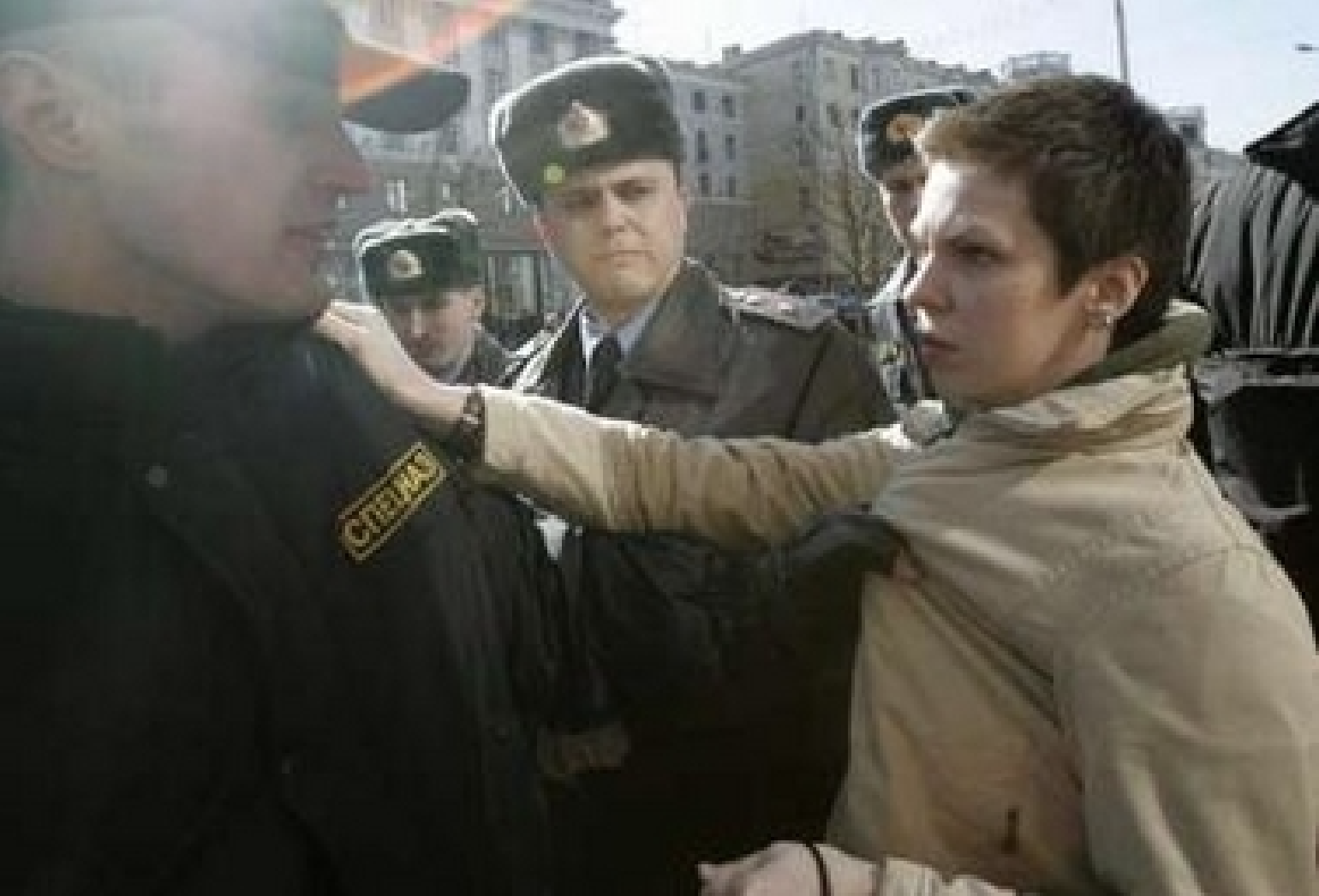
Belarus demonstrator: 'The worst was the screams'
by Natalia KaliadaOne night in August Sviatlana S. was grabbed by police when she was at a peaceful protest in Minsk calling for Belarusian president Alexander Lukashenko to step down.
Riot police threw her into a packed van and transported all of the people inside to a detention centre.

They next few days were hell. She was kept in three-by-four metre cell with 36 other women without access to food, water or a toilet. There was so little space they had to sleep in shifts.
If they asked for water a guard would come and throw freezing cold water on them. If they defecated on the floor the guards would threaten to shoot them. At times they would take some of the prisoners out into the yard, tell them they were going to be shot and leave them to stand there - before finally bringing them back to the cell.
The worst, however, were the screams. The men were being kept on the floor above and all through the night and day they could hear the screams of men being tortured.
When I spoke to Sviatlana after her release seven days later, she told me she would never forget the sound of those screams.
Such is the reality in Belarus as Lukashenko tries to maintain his grip on power after a falsified election.
The well-honed repressive state machine has been in overdrive and Russian security and propaganda experts have been flown in to expand those efforts.
Russia is willing to support Lukashenko because it is not in president Putin's interest to allow democracy to come to Belarus. A hybrid Russian intervention is already underway.
Like in Sviatlana's case, these efforts are meant to make people afraid. But after decades of rule by these tactics, they aren't working anymore. Each protest brings out unprecedented crowds.
Lukashenko has shown he will continue to double down on repression and Russia has shown it is willing support him. It is time for the EU to show maximum solidarity and support for the democratic protestors in Belarus.
As Lithuanian foreign minister Linas Linkevičius said last week, "it is not enough to judge, to assess, to condemn, there should be actions. We have to speed up."
By imposing their own sanctions, the Baltic states are doing just that.
Now is an unprecedented time when Belarus is in the news across the world and my phone is constantly ringing with activists and politicians trying to understand what is happening and what they can do.
West can do more
I want to tell you the same thing I tell them: people in the west and western governments can do much more than they think.
Heartfelt concerns from international allies and condemnation of mass human rights violations will not help much. A collective, strong stance by the EU is needed to allow for a peaceful transition of power in Belarus.
Grassroots activities can raise awareness and push for targeted sanctions. Targeted extended sanctions are urgently needed against those who falsified the election and participated in the ongoing violent repression. The EU can make those sanctions a reality.
I know people are capable of more than they think from my work with the Belarus Free Theatre that I co-founded.
We wanted to break the government's monopoly on culture and perform theatre that connected Belarus to the rest of the world and was more than just a government mouthpiece.
To do that we held our performances in people's homes where we knew the state couldn't suddenly deny us a venue.
Theatre as dissent
Homes were the one place Belarusians felt comfortable talking openly about politics, and as we turned homes into meeting places and stages, we also wanted to show Belarusians that there was more room for protest than they thought, and more people who thought like them.
With over a hundred thousand Belarusians coming out of the apartments like the ones we performed in and into the streets, it has been amazing how many of us there really are.
While Lukashenko is in power he will continue to use repressive measures to suppress protestors.
But the EU can stop Belarus from vanishing into the obscurity that has allowed Lukashenko to steal elections and stay in power before.
For those with political power and engagement, there is more that can be done, especially for Sviatlana S. and the some 7,000 people detained like her.
For weeks now, Belarusians have been compiling a crowdsourced list with the names of Belarusian officials responsible for the arrest, detention and torture of peaceful protestors.
More than declarations of concern, Belarusians need those people's names to be said, put on travel ban lists and to have their assets in the west frozen. Only then will these officials realise that saying they were just following Lukashenko's orders will not be enough to protect them.
In this crisis there are some things everyone can do - each according to her own ability. If people both inside and outside Belarus do what they can, they will be amazed by what they can accomplish.
With the EU's support, Belarus has a chance to shed its 'oldest dictatorship' title and become instead, the youngest democracy in Europe.
Author bio
Natalia Kaliada is a political activist and founder of the Belarus Free Theatre. She now lives in exile in London.
Disclaimer
The views expressed in this opinion piece are the author's, not those of EUobserver.